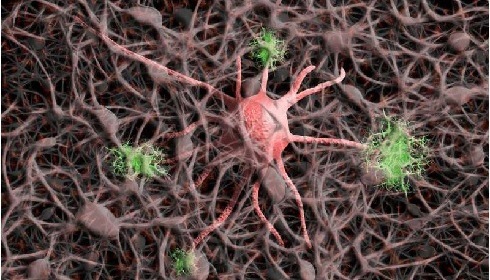
US scientists discover inhibiting aryl hydrocarbon receptors end chronic inflammation in Multiple sclerosis
In a discovery that has the potential to cure multiple sclerosis and benefit other autoimmune diseases, researchers from Virginia University stated that they have identified a vital contributor to the hyperactive autoimmune response and neuro-inflammation that are the hallmarks of multiple sclerosis.
The findings of the study, published in the journal PLOS Biology
recently, found that blocking the vital contributor, aryl hydrocarbon
receptors in animal models alleviated the harmful inflammation, thereby
giving researchers a prime target in their efforts to develop new
treatments for multiple sclerosis and other autoimmune diseases.
The
research, conducted by Andrea Merchak, a doctoral candidate in
neuroscience, and her colleagues in the lab of Associate Professor Dr
Alban Gaultier, at the University of Virginia School of Medicine’s
Department of Neuroscience and its Centre for Brain Immunology and Glia
Explain
their research Andrea Merchak said, “We are approaching the search for
multiple sclerosis therapeutics from a new direction.”
Related Articles
| - AIIMS to study different treatment modalities for multiple sclerosis |
| - Know more about Multiple Sclerosis |
Pointing
out that the information obtained during their research can be used to
find early interventions in multiple sclerosis and other autoimmune
diseases, she added, “By modulating the microbiome [the collection of
microorganisms that naturally live inside us], we are making inroads in
understanding how the immune response can end up out of control in
autoimmunity.”
According to available data in 2020, an estimated
2.8 million people across the globe was living with multiple sclerosis,
a disease usually present at a highly productive stage of life. It has
been recording a rising trend since 2013.
The symptoms of the
disease can include muscle spasms, stiffness, weakness, difficulty
moving, depression, and pain, among others.
Experts say that
currently, there is no cure for the disease, and treatments on assisting
patients in managing their symptoms, controlling flare-ups and reducing
the progression of the disease.
Bolstering the findings of
recent research indicating that the gut microbiomes play an essential
role in multiple sclerosis, the researchers said that they had found an
immune system controller found in “barrier tissues” such as the
intestine, which can reprogramme the gut microbiome to promote harmful
chronic inflammation.
Dr Gaultier and his collaborators found
that blocking the activity of the regulator, called “aryl hydrocarbon
receptor,” in immune cells called T cells dramatically reduced the
production of bile acids and other metabolites in the microbiomes of lab
mice.
The researchers found that with this receptor out of commission, inflammation decreased and the mice recovered.
Though
these are initial findings, they suggest that doctors may one day be
able to take a similar approach to interrupt the harmful inflammation in
people with multiple sclerosis and much more research is needed for a
better understanding of the interactions between the immune system and
the microbiome, the researchers said.
“Due to the complexity of
the gut flora, probiotics are difficult to use clinically. This receptor
can easily be targeted with medications, so we may have found a more
reliable route to promote a healthy gut microbiome,” Merchak said.
“Ultimately,
fine-tuning the immune response using the microbiome could save
patients from dealing with the harsh side effects of immunosuppressant
drugs,” she added.